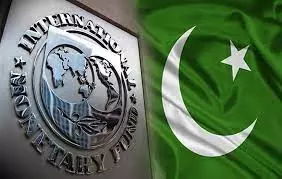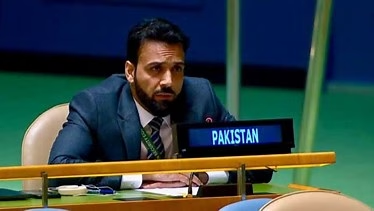.
ISLAMABAD, Pakista The International Monetary Fund said Thursday that it has achieved a preliminary deal with Pakistan to resurrect a $6 billion bailout plan for this poor, Muslim-majority country that has been plagued by a severe economic crisis since last year.
Pakistan and the IMF inked the agreement in 2019. However, the delivery of a little more than $1 billion tranche has been halted since early this year. The IMF voiced worry at the time about Pakistan’s compliance with the terms of the bailout under former Prime Minister Imran Khan. Khan was deposed by the parliament in an April no-confidence vote.
Since May, the administration of newly elected Prime Minister Shahbaz Sharif has been in discussions with the IMF to avert a default similar to that of Sri Lanka.
“The agreement with the Fund has set the scene for the nation to emerge from its economic troubles,” Sharif remarked on Twitter.
To meet IMF conditions, Pakistan’s government imposed additional taxes and reduced fuel, electricity, and natural gas subsidies in recent weeks. This made the administration very unpopular, although Sharif maintains that the measures were essential.
The fund stated in a statement Thursday that it had “reached a staff-level agreement (SLA) with the Pakistan authorities.” The agreement is “subject to ratification by the IMF’s Executive Board,” according to the statement.
It said that Pakistan would be eligible for a key instalment of around $1.17 billion.
The IMF will also increase the size of the bailout from $6 billion to $7 billion, subject to approval from the IMF’s executive board, which is normally regarded a formality.
Miftah Ismail, Pakistan’s Finance Minister, accused Khan for creating a Sri Lanka-like scenario in Pakistan, alleging that the deposed premier had purposefully broken IMF rules in order to stay popular.
Sharif said in a video message on Thursday that he was lowering petrol and diesel rates by up to 15%, a move he claimed was made feasible by the drop in worldwide oil prices.
Analysts believe that reviving the IMF bailout would assist the government in overcoming the economic crisis since the release of instalments from the fund will encourage other foreign financial institutions to participate with Pakistan.
According to authorities, Sharif’s administration also asked Washington for assistance in restarting the IMF bailout. Since his removal, Khan has often claimed that his administration was destabilised by a US conspiracy, which Washington denies.
The IMF will also increase the size of the bailout from $6 billion to $7 billion, subject to approval from the IMF’s executive board, which is normally regarded a formality.
Miftah Ismail, Pakistan’s Finance Minister, accused Khan for creating a Sri Lanka-like scenario in Pakistan, alleging that the deposed premier had purposefully broken IMF rules in order to stay popular.
Sharif said in a video message on Thursday that he was lowering petrol and diesel rates by up to 15%, a move he claimed was made feasible by the drop in worldwide oil prices.
According to authorities, Sharif’s administration also asked Washington for assistance in restarting the IMF bailout. Since his removal, Khan has often claimed that his administration was destabilised by a US conspiracy, which Washington denies
Analysts believe that reviving the IMF bailout would assist the government in overcoming the economic crisis since the release of instalments from the fund will encourage other foreign financial institutions to participate with Pakistan.











